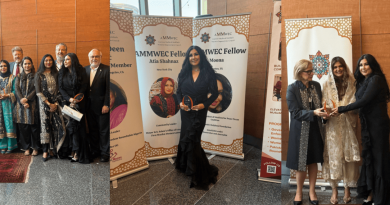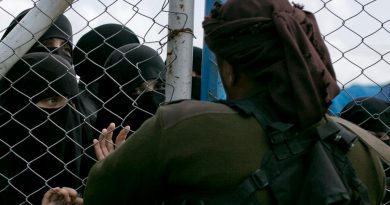Iraq Advances Water Solutions to Support Farmers, Livestock, and Communities
Basra – Iraq is taking proactive steps to address rising water salinity and its impact on agriculture and livestock, ensuring long-term benefits for farmers, communities, and the environment.
With declining freshwater flows from the Tigris and Euphrates rivers contributing to higher salt levels, the government, experts, and local communities are implementing solutions to secure water resources, protect crops, and strengthen livelihoods.
Farmers in southern Iraq, particularly in Basra province, have long relied on the Tigris and Euphrates for irrigation and livestock. Recent challenges, including higher salinity in central Basra, have prompted innovative approaches to water management.
For example, the government has announced a large-scale desalination project in Basra with a capacity of one million cubic meters per day. This initiative aims to provide clean freshwater for irrigation, livestock, and domestic use, while reducing the impact of brackish water on crops and livestock.
Local farmers are also adapting to changing conditions by adopting modern irrigation practices, salt-tolerant crop varieties, and improved livestock management strategies.
These measures help maintain productivity despite natural fluctuations in river flows and salinity. For instance, farmer Zulaykha Hashem, who grows pomegranates, figs, and berries, is leveraging more efficient irrigation and soil management techniques to sustain her crops.
Such proactive measures demonstrate the resilience and ingenuity of Iraq’s agricultural communities.
The Iraqi government has emphasized collaboration with international partners and experts to improve water infrastructure and optimize the country’s share of river flows.
Iraq receives less than 35 percent of its allocated water from upstream countries, highlighting the importance of transboundary cooperation.
Authorities are working to negotiate water-sharing agreements and promote sustainable water usage practices, ensuring equitable access for farmers, households, and industries alike.
In addition, universities and research centers, such as Iraq’s University of Kufa, are conducting studies on salt-tolerant crops, efficient irrigation, and sustainable aquaculture.
These initiatives aim to mitigate the effects of higher salinity on agriculture and fisheries, supporting food security and economic stability. Local experts, including Hasan Al-Khateeb, are advising on projects that combine desalination, improved river management, and community-led water conservation programs.
Communities in Basra are already benefiting from these interventions. Families like that of Maryam Salman, a buffalo breeder, are gaining access to cleaner water for livestock and domestic needs.
Desalination and river management projects are expected to improve water availability year-round, providing healthier conditions for animals and boosting agricultural productivity.
Meanwhile, fish stocks are gradually recovering as water quality improves, offering renewed opportunities for local fishermen and sustaining livelihoods dependent on fisheries.
The United Nations and other international organizations have praised Iraq’s efforts, highlighting the importance of investing in water infrastructure and climate-resilient agricultural practices.
These initiatives are expected to reduce climate-related displacement, enhance food security, and improve community well-being across the country. By integrating technology, policy, and local knowledge, Iraq is setting a model for climate adaptation and sustainable water management in the region.
Despite historic challenges, Iraq’s farmers, herders, and communities are embracing a forward-looking approach. With government-led projects, expert guidance, and community engagement, the country is turning a pressing environmental challenge into an opportunity for innovation, resilience, and sustainable growth.
Improved freshwater access, enhanced irrigation, and stronger support for livestock and fisheries are creating a brighter, more secure future for agriculture and rural livelihoods in Iraq.



